Lab Members
Principal Investigator
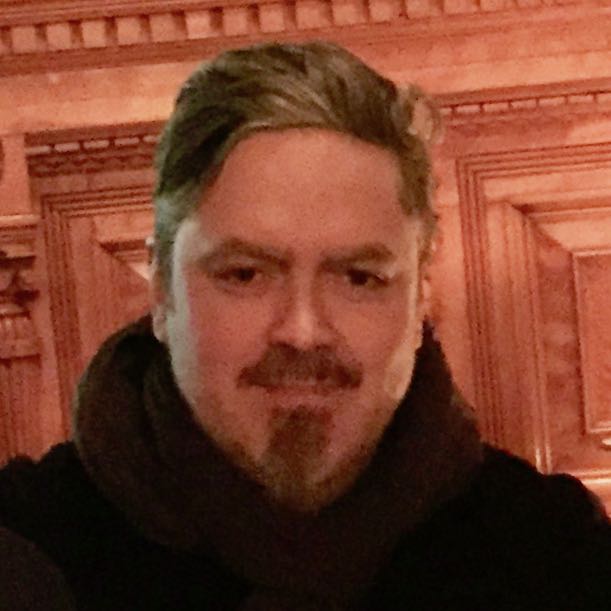 |
Tracy McGaha, PhDSenior ScientistDr. McGaha obtained his Ph.D. in Immunology at the Ichan School of Medicine at New York University and pursued post-doctoral training at the Rockefeller University. Dr. McGaha started his own lab as an Assistant Professor at Temple University before moving to Georgia Regents University in 2008. Dr. McGaha joined the Princess Margaret Cancer Centre as a Senior Scientist in 2015. He is also an Associate Professor in the Department of Immunology at the University of Toronto. Dr. McGaha’s research interests involve mechanisms of immune tolerance induced by cell death and communication between innate and adaptive cells in regulatory immunity. His laboratory was one of the first to demonstrate that specialized stromal macrophages (i.e. tissue-resident) control early immunity to apoptotic cells regulating both dendritic cell and T cell responses to apoptotic antigens, and disrupting the function of these macrophage subsets renders mice susceptible to apoptotic cell-driven autoimmune disease. Ongoing studies are characterizing the cell specific contribution to the apoptotic cell regulatory immune responses, cellular stress, and immuno-metabolism in the context of autoimmunity and cancer. |
Lab Manager
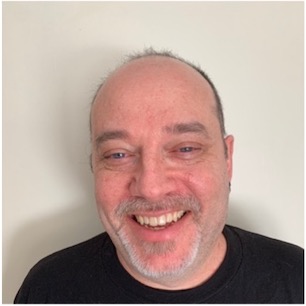 |
Marc AngeliLab ManagerMarc received his Bachelor of Science from New Mexico State University, he then moved on to Graduate studies in Biotechnology at Johns Hopkins University. During that time, he worked at the Walter Reed Army institute of Research studying breast and prostate cancer looking for novel genetic interactions in both. Over the years, he has gained extensive experience in industrial, clinical and academic research utilizing a wide variety of methodologies. Before coming to the McGaha lab his focus was on Hepatocellular Carcinoma biology and the microbiome’s influence over post-transplant pathology. Although primarily focusing on managing the implementation of all lab projections, he is involved in the development new model systems for the lab. |
Postdoctoral Scientists
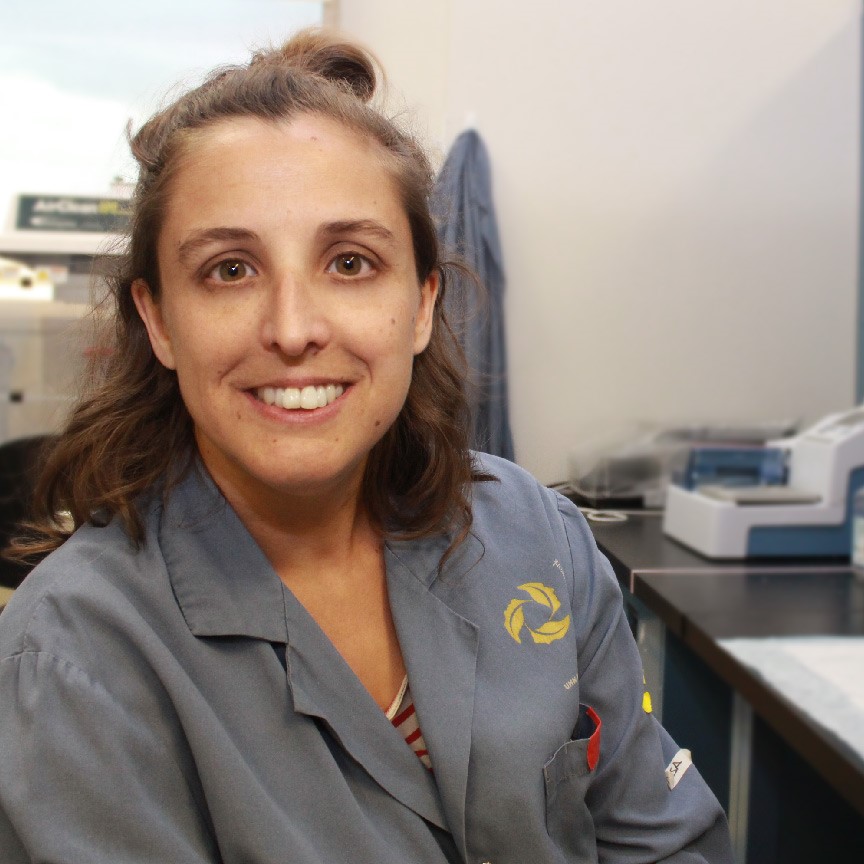 |
M. Teresa Ciudad, PhDScientific AssociateDr. Ciudad received her PhD in Immunology from the Autonomous University of Barcelona (Spain). Her doctoral thesis analyzed HLA-DR-peptide repertoires in tolerance and autoimmune diseases, such as Graves’ disease and Type 1 Diabetes (T1D), as well as the role of extracellular proteolysis in the generation of immunodominant peptides. She joined Dr. McGaha’s lab in 2016 to continue working in autoimmunity. Dr. Ciudad work involves manipulating macrophages (MΦ) to be used as therapeutic target in T1D and to promote β-islet transplant tolerance. Dr. Ciudad is doing whole-genome CRISPR/Cas9 screenings in regulatory MΦ to identify new suppressive pathways and molecules that can be enhanced, limiting off-target effects resulting from generalized suppression. At the same time, Dr. Ciudad is delineating the role (either pro- or anti -inflammatory) of unfolded protein response and integrated stress response mediators (i.e. GCN2, XBP1, PERK) in MΦ phenotype and islet destruction in T1D. |
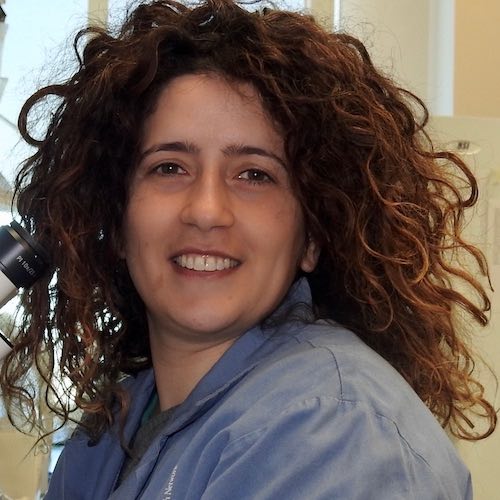 |
Sara Lamorte, PhDScientific AssociateDr. Lamorte received her PhD from the University of Turin (Italy). Her doctoral thesis analyzed the role of the tumor microenvironment in cancer. She joined Dr. McGaha’s laboratory in 2016 to deepen the understanding of the role of myeloid cells such as macrophages in promoting tolerance against cancer. Macrophages are phagocytes found essentially in all tissues with the role of engulfing and digesting not only foreign substances, but also apoptotic cells generated under homeostatic conditions. Clearance of apoptotic cell is essential for maintenance of tolerance of self-antigen. Dr. Lamorte hypothesizes that clearance of apoptotic cells, generated after chemotherapeutic treatment, will initiate a tolerogenic response against the tumor triggered by macrophages and involving recruitment of regulatory T cells as well as suppression of cytotoxic lymphocyte T activity. She is particularly interested in the pathways activated in macrophages by the process of apoptotic cell clearance and the possibility of developing targets inhibiting these pathways as adjuvant therapy in cancer treatment. |
 |
Rene Quevedo, PhDSenior Bioinformatics AnalystDr. Quevedo received his PhD in Medical Biophysics from the University of Toronto. His doctoral thesis focused on modelling the mechanistic and therapeutic roles that allele-specific copy number alterations have in cancer. He joined Dr. McGaha’s lab in 2021 to apply his computational expertise and machine learning approaches to studying autoimmunity.Within the McGaha lab, he primarily focuses on assisting members of the lab to process and analyze their data, as well as working in collaborative efforts with other labs. He is involved in the development of standardized workflows, building novel algorithms, analysis and data-visualization of data from single-cell multiomics (RNA, ATAC, VDJ), bulk RNA-Seq, CUT&RUN, ATAC-Seq, shotgun metagenomics and V3-V4 16S rRNA sequencing. |
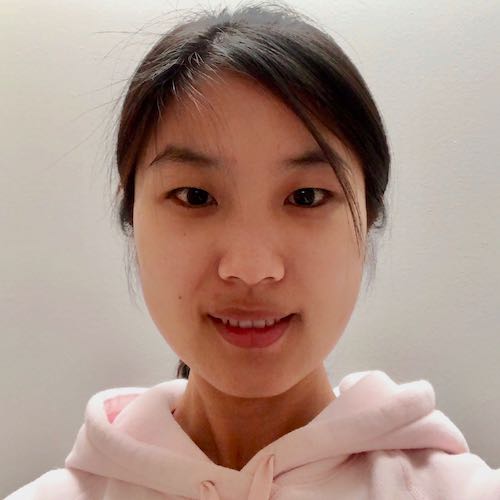 |
Xin Zhang, PhDPostdoctoral FellowDuring her PhD at Xiamen University, Xin Zhang studied protein post-translational modification (SUMOylation, Ubiqitination) and DNA damage-induced autophagy and mitophagy. Dr. Zhang joined Dr. McGaha’s lab in 2018 to study the link between mTOR pathway and immunity. The development of Systemic Lupus Erythematosus (SLE) is due to the loss of tolerance of nuclear antigens exposed by apoptotic cells. Many studies have reported that increased IDO activity correlates with SLE-disease flare. IDO-GCN2 is a key molecular regulator driving the process of tolerance to apoptotic cells. Furthermore, mTOR plays a key role in regulating cellular metabolism, cytokine response, antigen presentation and macrophage polarization. In summary, Dr. Zhang aims to understand how IDO and its downstream targets – GCN2 and mTOR – may be critical for the tolerogenic immunity of apoptotic cells, which may ultimately provide important insight into SLE. |
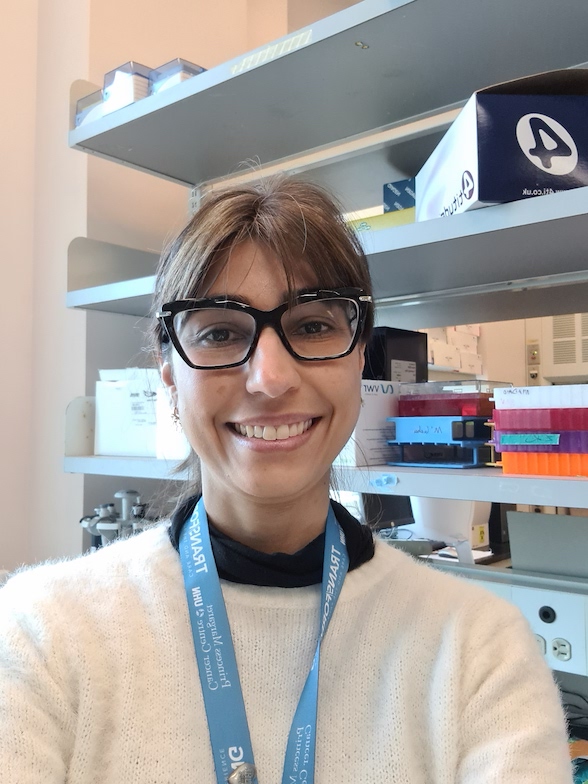 |
Cristiane Naffah de Souza, PhDPostdoctoral FellowDr. Naffah de Souza received her Ph.D. in immunology from the University of São Paulo (Brazil). During her Ph.D., she analyzed the role of mTORC2 in neutrophil effector functions in a sepsis model. She also did 1-year internship at The Hospital for Sick Children, where she worked on molecular mechanisms of Neutrophil extracellular traps (NETs). She joined Dr. McGaha’s lab in November 2021 to study the role of obesity in Pancreatic Ductal Adenocarcinoma (PDAC), focusing on the IL-1 production by Tumor-Associated Macrophages (TAMs) or tumor cells. Obesity is a risk factor for many types of cancer, including PDAC. It is associated with PDAC development and aggravates tumor progression and survival. Obesity impacts macrophage function and metabolism in key ways. For example, feeding can directly induce macrophages to produce IL-1β impacting insulin response and glucose metabolization. In this sense, understanding the molecular mechanisms by which obesity can influence TAMs and tumor cells enables targeting adjuvant therapies to PDAC. |
Graduate Students
 |
Luke NeufeldPh.D. StudentLuke received his BSc in Biochemistry (Honours) with a Minor in Business from the University of Victoria. During his final year he completed an immunology focused undergraduate thesis under the supervision of Dr. Brad Nelson at the BC Cancer Agency’s Deeley Research Centre. Luke’s thesis focused on improving adoptive cell therapy using alternative techniques for human T cell culture. He began his PhD at the University of Toronto in 2018, joining Dr. McGaha’s lab at the Princess Margaret Cancer Centre. Pancreatic cancer has an extremely poor prognosis and is characterized by resistance to therapy, hypoxia, and immune infiltration. Tumour associated macrophages (TAM) constitute a major immune cell population that plays an immunosuppressive role within the pancreatic tumour. Luke aims to elucidate the interplay between tumour hypoxia and aryl hydrocarbon receptor (AhR) signalling in driving the suppressive phenotype of TAMs. The goal of this research is to modulate the immune response to pancreatic cancer by manipulating these two signalling pathways within TAMs. Ultimately, components of these pathways could be targeted by novel therapeutics to spur an immune response to pancreatic cancer. |
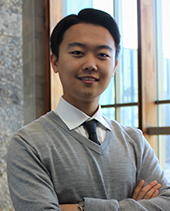 |
Robbie JinPhD studentRobbie received his Bachelor of Medical Science with an Honours Specialization in Microbiology and Immunology from Western University in 2020. He was first introduced to the research world as a summer research student in the lab of Dr. Susan Poutanen at Mount Sinai Hospital, Toronto. There, he primarily focused on evaluating an assay for vancomycin detection from a stool matrix. During his undergraduate studies, he completed a year-long internship at Sanofi Pasteur's Immunology platform, where he worked on developing an antigenicity assay to assess the quality of vaccine antigens produced on site. In his final year at Western University, he completed an undergraduate thesis under the supervision of Dr. Steven Kerfoot, where he focused on comparing several mouse models of multiple sclerosis at the chronic stage of disease. He began his PhD in Immunology at the University of Toronto in 2020, joining Dr. Tracy McGaha’s lab at the Princess Margaret Cancer Centre. He is studying the interaction between tumour-associated macrophages and organoids derived from pancreatic cancer patients. |
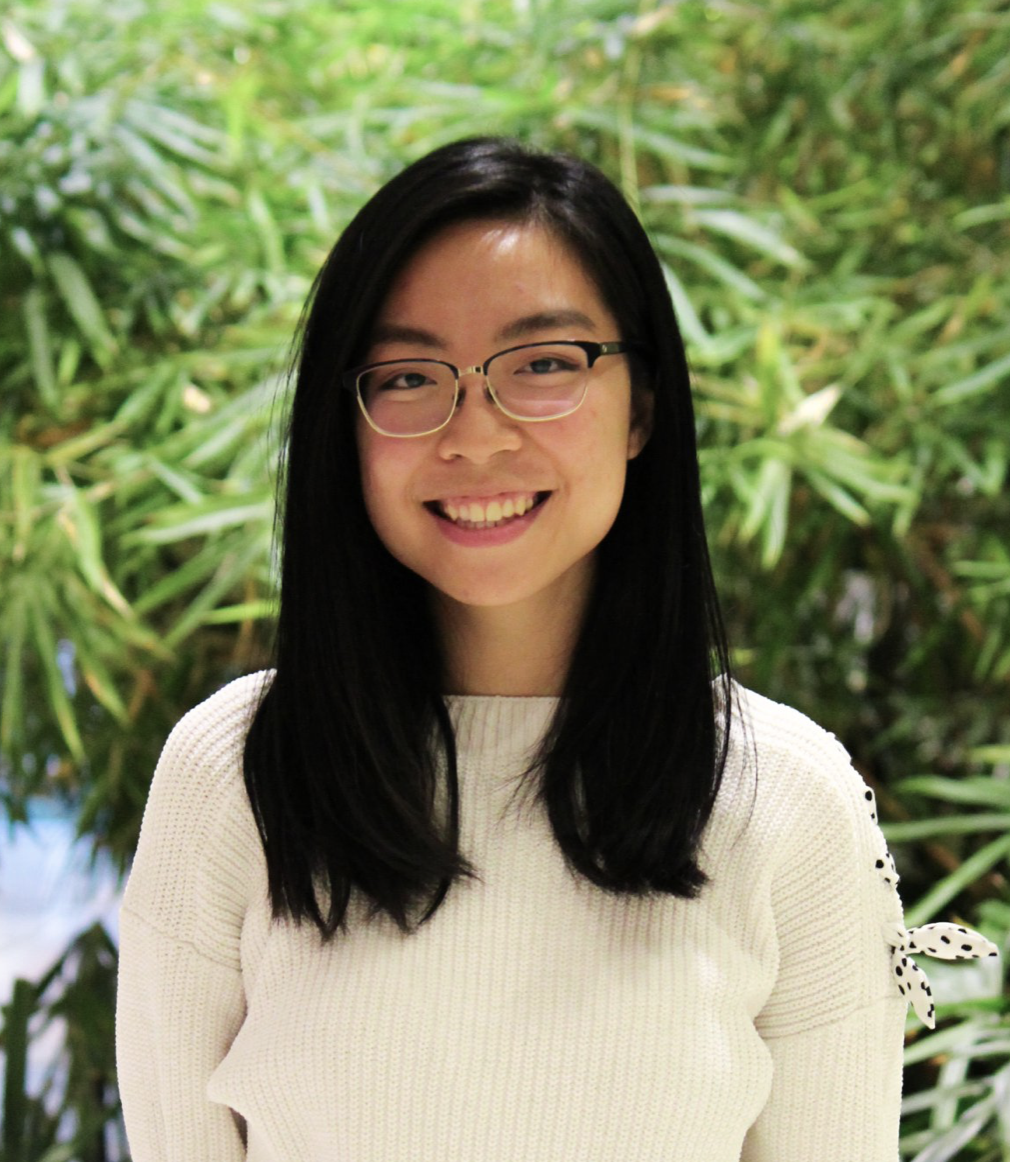 |
Kitty LiuPh.D. studentKitty received her HBSc in Immunology (Specialist) from the University of Toronto. Her interest in cancer immunology began in her undergraduate thesis in the lab of Dr. Pamela Ohashi at Princess Margaret Cancer Centre. Her thesis was focused on elucidating mechanisms by which CD8+ T cells may resist immunosuppression by regulatory T cells in the context of cancer. After completing her undergraduate studies, she began her PhD in 2019 in Dr. Tracy McGaha’s lab at the Princess Margaret Cancer Centre.
She is currently investigating the interaction between CD8+ T cells and the microbiome in pancreatic ductal adenocarcinoma. Her research project aims to provide insights into how the microbiome may shape the CD8+ T cell anti-tumour response and ultimately, identify novel immunotherapy via modulation of the microbiome-immunity axis. |
Matthew BiancaPh.D. studentMatthew received his Bachelor of Science with an Honours Specialization in Biology and Pharmacology from McMaster University. During his undergraduate studies, he had the opportunity to conduct research in various experimental fields including radiation biology and respiratory mucosal immunology. Matthew completed an undergraduate thesis within the Firestone Institute for Respiratory Health where he evaluated the ability of pharmacological compounds to potentiate the cystic fibrosis transmembrane conductance regulator. |
Research Technicians
 |
Nadine Nzirorera, MScResearch TechnicianNadine obtained her BSc in Biology-Psychology at the University of New Brunswick, and later completed an MSc at McGill University in Human Genetics. Her master’s thesis focused on elucidating the role of histone H3 mutations in craniofacial development. Nadine joined the McGaha lab in September 2021 as a research technician and will be assisting in a collaborative project to assess the anti-tumor activity of a drug cocktail in treatment of high risk and refractory acute myeloid leukemia (AML). |
Shannon MacKenzieResearch TechnicianShannon received her BSc in Biology from the University of Pittsburgh. She then went on to become an RVT followed by an RLAT. After graduation, she became a Veterinary Technologist at the University of Toronto where she gained extensive knowledge in a variety of animal models and techniques. Shannon joined the McGaha lab in February 2022 as a research technician and will be managing the labs animal colony and helping in the development of new animal models. |
Former Lab Members
Marie-jo Halaby, PhD 2015 – 2021
Current Position: Field Application Scientist at Beckman Coulter Life Sciences. Toronto, Canada
Priya Makhijani, MSc 2018 – 2021
Current Position: PhD Candidate. University of Toronto, Canada
Zeynep Kahramanoğlu, MSc 2018 – 2021
Current Position: Scientific Communications Specialist at The Princess Margaret Cancer Foundation. Toronto, Canada
Kebria Hezaveh, PhD. 2016 – 2021
Current Position: NGS Biomarker Scientist at AstraZeneca. Gothenburg, Sweden
Russell Dickson, PhD 2017 – 2019
Current Position: Bioinformatics at F. Hoffmann-La Roche Ltd. Mississauga, Canada
Rahul Shinde, DVM, PhD. 2011-2018
Current Position: Assistant Professor, The Wistar institute. Philadelphia, PA, USA
Buvana Ravishankar, PhD. 2010-2015
Current Position: Scientist, AbbVie. Chigaco, IL, USA
Kapil Chaudhary, MD, PhD. 2010-2015
Current Position: Physician Scientist, Thomas Jefferson University. Philadelphia, PA, USA
Jillian Bradley, PhD. 2010-2015
Current Position: Assistant Professor, Edward Via College of Osteopathic Medicine. Spartanburg, SC, USA
Haiyun Liu, PhD. 2009-2014
Current Position: Scientist II at NexImmune, Gaithersburg, MD, USA